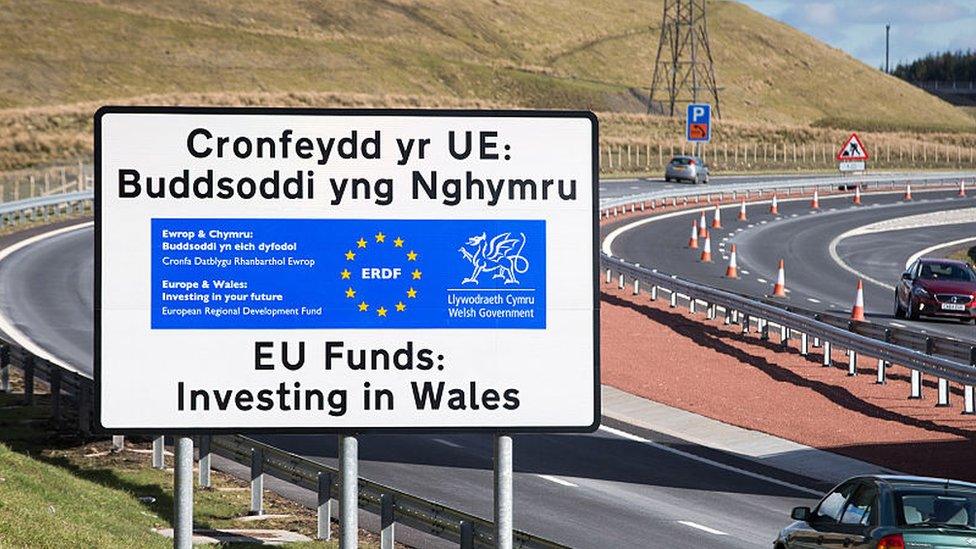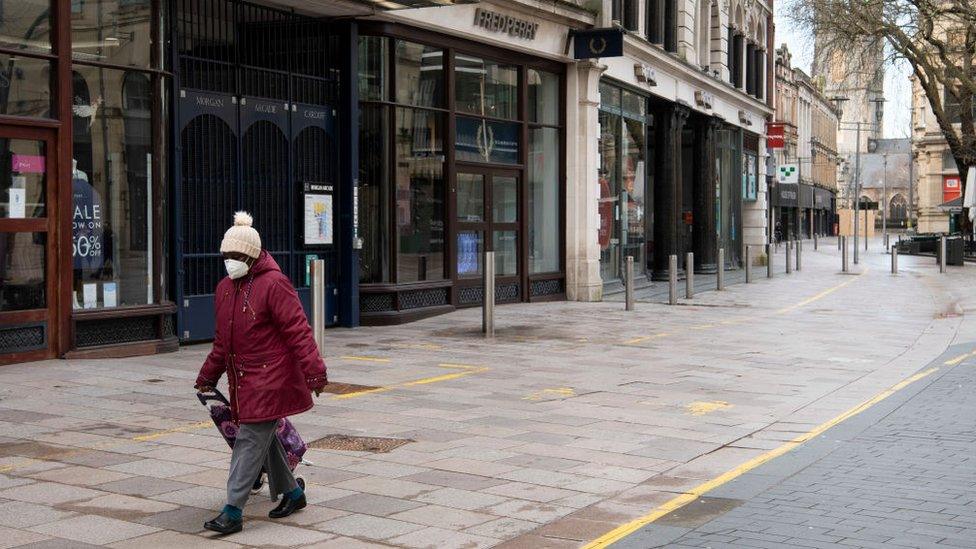Wales' bid to stop brain drain of young people
- Published
- comments

Economy minister Vaughan Gething says young people do not need to leave Wales to move on with their careers
Young people do not have to "get out" of Wales to "get on", the economy minister has said.
Vaughan Gething said he wanted to make Wales somewhere people feel "confident about planning their future".
He faces demographic challenges as the country is a "net importer" of older people and the Welsh government fears 16 to 64-year-olds could be just 58% of the population by 2043.
Speaking ahead of a summit, he said it was "Wales versus the rest of the UK".
"We've got to look again at how we look at Wales continuing to shift to become a higher skilled and higher wage economy," he told the BBC's Politics Wales.
"That's a big challenge - that's the story of devolution in many ways - a picture of Wales versus the rest of the UK."
Wales' percentage of people aged 16 to 64 fell from 63.7% in 2008 to 61.2% in 2020.
Mr Gething said it was a "success story that more of us can expected to live for longer. But the challenge is we are a net importer of older people".
He added that the demographic trend was also "a big economic challenge for us".
"That's why we need to have a future for the Welsh economy that means that people can see a way to be successful here, and to invest in that talent."

Mr Gething said it was a case of "Wales versus the rest of the UK" in terms of economic recovery
He added: "My ambition is to make Wales a place where more young people feel confident in planning their future here. You don't have to get out to get on, make your future here in Wales."
Businesses, trade unions and local government leaders were invited to the economic summit where Mr Gething spoke about his economic plans on Monday, held at Transport for Wales' new headquarters in Pontypridd, Rhondda Cynon Taf.
He plans to offer "as much certainty as possible" for businesses and proposals to strengthen regional economic development.
The Welsh government is also expected to say its UK counterpart should be "honouring promises made on EU successor funds, backing major renewables such as tidal energy and investing in Welsh research and development".
Speaking ahead of the summit, Mr Gething said: "As we face the headwinds of Brexit, I am determined that our credible plans will offer as much certainty as possible to help businesses plan ahead."
He said his plan would include "a new era of partnership for stronger regions, a young person's guarantee, a plan to back our everyday economy and collaboration with world-leading, advanced manufacturing".
Paul Davies, of the Welsh Conservatives, said: "After running health, education, and economic development in Wales for a quarter of a century, it is refreshing to see Labour finally admit the problems they have failed to address like the brain drain that has left our businesses and public services falling behind elsewhere in the UK.
"Sadly, they still do not have a plan to stop young people leaving as we see good jobs remain concentrated in Cardiff or outside Wales altogether, and road-building put indefinitely on hold rather than give workers the infrastructure they need to grow the economy."


The aim the Welsh Government is setting itself is to make Wales a more attractive place to live and work - it wants more young people to stay here, others who have left to return and to attract young people with no previous links to Wales.
Changes, such as remote working that have come from the pandemic, have made that more possible.
Many employees are predicted to continue working from home for at least some of their time.
House prices in scenic communities are already rising steeply, and having more higher paid people moving into those communities to work remotely is likely to accelerate that.
Vaughan Gething says there is a big difference between people buying second homes in Wales, and, on the other hand, moving to Wales, setting up businesses and spending here.
The challenge, however, is that the changes work both ways and increasingly people can work for Welsh companies without living in Wales.

BLACK AND WELSH: Celebrate our multicultural nation; humour, pride and lived experience
HAYLEY PEARCE PODCAST : Tackling the issues that make your group chats go off

- Published5 May 2021

- Published15 June 2021

- Published3 March 2021

- Published26 June 2021

- Published26 January 2021

- Published17 June 2021
